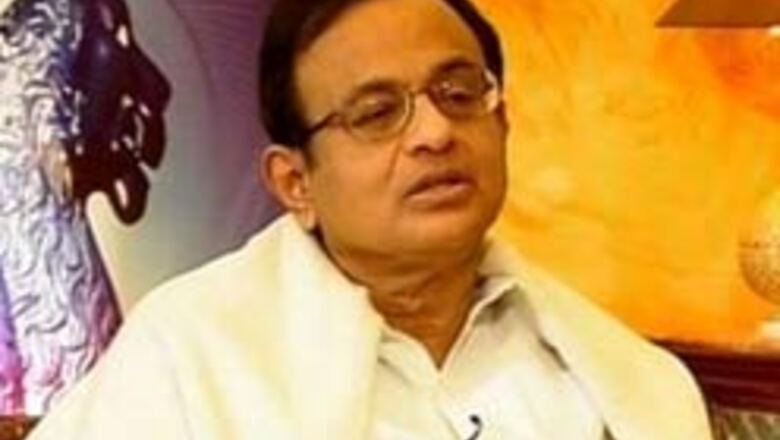
views
New Delhi: The annual rate of inflation inched closer to the 12 per cent mark at 11.91 per cent for the week ended July 5 from 11.89 per cent for the week before, official data said on Thursday.
At this level, the inflation rate based on the official wholesale price index (WPI) was at its highest level in 13 years and comes before the Centre faces a crucial trust vote in Parliament next Tuesday.
The official data, which is now being released on Thursdays instead of the earlier practice of Fridays, came soon after Finance Minister P Chidambaram said that the country continued to witness inflationary expectations.
Alarmingly, the final data for the week ended May 10 put the annual rate of inflation at 8.57 per cent against 7.82 per cent based on provisional figures announced earlier.
"There is still pressure on prices. But there are signs that monetary steps are taking effect," Finance Minister P Chidambaram told reporters, adding that the growth in money supply was slowing down, which would result in a moderation of prices soon.
Chidambaram said he has had a word with Reserve Bank of India (RBI) Governor Y V Reddy in this regard and that the assessment was that inflation rate would moderate as a result of the administrative and monetary steps taken in the past few months.
"I am in broad agreement with him," he added, soon after a briefing on the decisions taken by the cabinet earlier Thursday.
Economists were apprehensive about the impact of high inflation not only on the citizen but also on India's economic growth that has been averaging nine per cent and above in the past three years.
“Economic growth will be slack. India will be a high inflation-slow growth economy for some time now,” said Atulan Guha, professor at the Institute for Studies in Industrial Development, a Delhi-based think tank.
“In the last four-five years industries in the country invested huge portions in plant and machinery and fixed assets expecting the demand to increase in the future,” he said.
“The tight monetary policy, the situation in the US and stock market and realty market conditions have decreased the demand considerably - hence the increasing prices.”
A statement released by the finance ministry later said the inflation rate had increased only marginally in the recent weeks and that in the period under review, it had moved up "very marginally".
"Inflation on a week-on-week basis has stabilised. The WPI (WPI) moved up only marginally from 238.1 in the week ending June 28, 2008, to 238.7 in the week ending July 5, 2008," it said.
"The annual inflation rate for the group of 30 essential commodities has also declined to 5.74 from 5.98 per cent reported for the week ending June 28, 2008," it said.
"Prices of essential commodities which include food grains, pulses, edible oils, vegetables, dairy products and some other commodities including kerosene, soap and safety matches have more or less stabilised."
The data released by the commerce ministry showed that the index for primary articles showed a decline of 0.1 per cent during the week. The index for food articles declined 0.2 per cent due to lower prices of fruits and vegetables.
Prime Minister Manmohan Singh has also said that inflation was a cause for worry but maintained that the reasons for it were beyond the control of any individual government.
"It is not a typical inflation, it's influenced by global factors," the Prime Minister said earlier in the week.
















Comments
0 comment